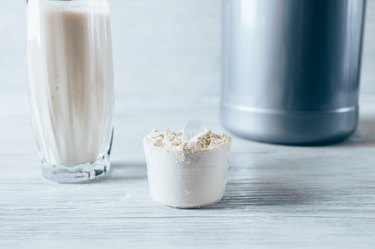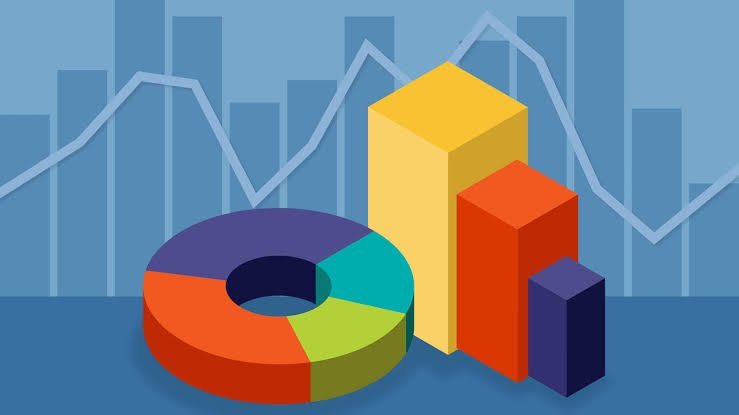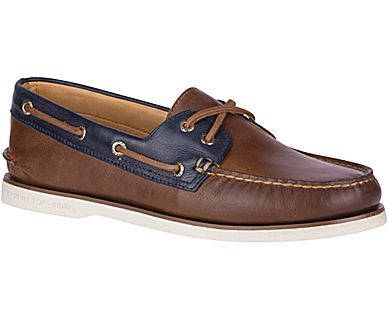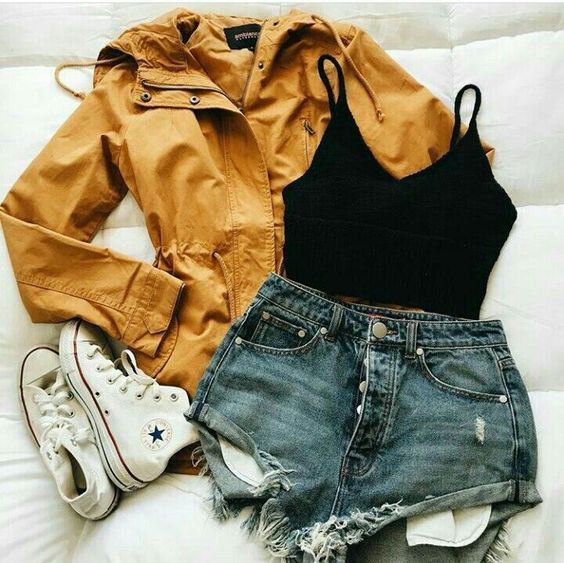What you eat before and after your workout can make or break your results. If you don’t fuel your body properly, you could find yourself feeling completely drained, unable to complete your workout, or more likely than not, losing muscle mass. But if you prepare your body for the extra energy needed for a good workout by eating the right foods beforehand and following up with the right nutrients afterwards, you’ll be able to build lean muscle tone while burning fat at an accelerated rate.
Pre-workout nutrition should contain a source of carbohydrates, some protein and moderate amounts of healthy fats. This will help keep blood sugar levels steady throughout your workout so that cortisol levels remain low (cortisol is released when blood sugar drops). Eating too many carbohydrates before working out can also cause a spike in insulin production, which leads to fat storage rather than burning it off.
Post-workout nutrition should contain mostly protein and healthy fats with minimal amounts of carbs so as not to interfere with muscle recovery. You also want to stay away from high glycemic index foods such as white breads and pastas because these types of foods cause an insulin spike which can have negative effects on muscle growth over time
Pre And Post Workout For Weight Loss
What to Eat Before and After Workouts to Lose Weight

Plan your preworkout meal for fat loss and muscle building in advance.
If you’re working out to lose weight, you’re well on your way to a slimmer body. But what you eat before or after your workout to lose weight is important too. What you eat before affects performance, and what you eat afterward is necessary to build calorie-burning muscle and replenish stored carbs. Consult your doctor before starting an exercise program or making changes to your diet.
Tip
Eat at least three hours before a workout to ensure the digestive process is well on its way. Or if that’s simply not possible due to your schedule, have an easily-digestible carb with a little protein mixed in.
Workout Calories for Losing Weight
When you work out, your body burns extra calories, which is what you want when you’re trying to lose weight. A 154-pound person burns 280 calories an hour walking at a pace of 3.5 miles per hour, and 590 calories jogging for an hour at a pace of 5 mph. A pound of fat contains 3,500 calories, so a 154-pound person would have to walk 12.5 hours or jog six hours to lose that 1 pound.
However, according to an article published in Obesity Review in 2013, some people who exercise don’t lose as much weight as expected from their workouts because they may not be burning as many calories as predicted and they may eat more calories. If you’re working out to lose weight, you need to consider the total number of calories you consume in an entire day, in addition to the number of calories you burn. The National Heart, Lung and Blood Institute says most active men and women can safely lose weight consuming 1,500 calories to 1,800 calories a day.
Preworkout Meal for Weight Loss
The goal of your before-workout meal is to provide your body with the energy it needs so you perform at your best, but without any stomach upset. If you’re not properly fueled, you may tire quickly, which may affect the intensity and length of your workout. It may also leave you famished after you finished exercising, which may lead to a post-workout binge. Also, because blood flows to your muscles during your workout, eating a big meal too close to exercising may lead to poor digestion and cramping.
What you should eat before depends on when you work out. Ideally, you should eat a healthy “mixed” meal, which means a meal with carbs, protein and fat, about three hours before your workout so your muscles have the energy necessary to push through. Good options include a turkey and cheese sandwich on whole-wheat bread with an apple and a nonfat yogurt, whole-wheat pasta with turkey meatballs and a salad, or baked potato stuffed with broccoli, low-fat cheese and pinto beans with an orange.
However, if you work out in the morning, you may not have the three hours necessary to fully digest a meal, in which case you may be better off eating an easy-to-digest carb with a little protein about 30 minutes before your workout — a hard-boiled egg and crackers, a toasted bagel with a slice of low-fat cheese or nonfat Greek yogurt with sliced peaches. Foods high in fat and fiber are difficult to digest and should be avoided right before your workout.
After-Workout Eating
Your post-workout meal may be one of the most important meals of the day. That 30 minutes after you’ve finished working out is prime time for muscle building and energy replenishment. The more muscle you have, the more calories your body burns, even at rest, which may help your weight-loss efforts.
The food after your workout to lose weight should include carbs and protein to help build muscle and replace glycogen stores. A glass of low-fat chocolate milk, a container of low-fat Greek yogurt or string cheese, and an apple make good post-workout snacks for losing weight.
Don’t Forget to Drink
What you drink before and after you work out is as important as what you eat. Like food, hydration can affect your workouts. When you’re trying to lose weight, water — as a calorie-free drink — makes the best choice. You should drink up to 20 ounces of water three to four hours before your workout, and another 8 ounces 30 minutes before according to Family Doctor. After you’re done working out, rehydrate with another 8-ounce glass of water.
Beware of Workout Foods
From sports drinks to protein bars, there are a plethora of nutrition products touted to help make your workouts easier and promote recovery. However, these products are not low in calories. With 160 calories in a 24-ounce sports drink and 220 calories in a protein bar, they can add up if you’re not careful. It’s OK to eat these foods — however, like everything you include in your weight-loss diet, be sure to count the calories, even from foods marketed to help improve your workout.
How Long After You Eat Can You Work Out?

How Long After You Eat Can You Workout?
Exercise after eating is primarily a personal preference. While getting enough of the right macronutrients before a workout is crucial, digestion is also important. You want to eat close enough to your workout that you have enough energy, but not so close that you experience an upset stomach. The latter factor largely depends on your own body. What you eat before a workout determines not only how soon you can exercise, but also how well you perform.
Tip
The best time to eat a meal is two to four hours before your workout.
It’s All About Digestion
If you get to the gym right after eating a big meal, your body hasn’t had time to process the food you’ve just consumed. A light snack may not cause you much trouble, but a big meal too soon might affect your performance, according to registered dietitian Christopher R. Mohr.
Some people have stomachs of steel and can work out on a full stomach without problems. Others have more sensitive stomachs and might experience stomach pain, nausea or other gastrointestinal problems if they eat too soon before a workout. Sports nutritionist Molly Kimball told ABC News that people need to experiment with pre-workout nutrition to see what works best for them.
Keeping It in the Window
You don’t want to wait too long after you eat to work out. The carbs and protein you just ate play roles in how much energy you have to exercise, how effective your workout will be and how well you’ll recover after your workout.
Working out on an empty stomach leaves you low on fuel. Without enough carbohydrates, which are the body’s main source of energy during exercise, you may feel sluggish and have low energy. Working out on an empty stomach can also cause a drastic drop in blood sugar, which can leave you feeling lightheaded and nauseated, according to PartnerMD.
If you are a weightlifter or bodybuilder, your protein needs increase. You should be eating protein throughout the day, but especially in the period before and after your workout. Protein, which is important for recovery, is what builds muscle.
Read more: What Are Causes of Fatigue During Exercise?
For the Long Haul
In certain situations, you might need to eat during your workout. For example, if you’re training for a half-marathon, some of your training runs are likely to be long. If exercise last more than one hour, registered dietitian Lee Murphy recommends eating 30 to 60 grams of carbohydrate from either easily digestible foods like bread and bananas or from sports drinks. According to Brian St. Pierre of Precision Nutrition, bodybuilders may need to consume a protein and carbohydrate drink during their workout.
Good Pre-Workout Snacks
Two to three hours before your workout, St. Pierre recommends a meal containing carbohydrates, protein and fats. Eat equal portions of a protein, such as fish or lean chicken, and vegetables and have one or two servings of carbohydrate-dense foods, such as brown rice and fruit. You can also include a small portion of healthy fats from nuts or oils.
Within one hour of your workout, St. Pierre says a shake is your best bet because it will digest more quickly. His favorite recipe includes a scoop of chocolate protein powder, a fist-full of spinach, a banana, a tablespoon of nut butter and 8 ounces of unsweetened almond milk.



